Simone Signoret in “Casque D’Or” (1952)
Jacques Becker’s 1952 film “Casque D’Or” is a tale of an ill-fated romance set in La Belle Époque. For this film’s purposes, that means the women wear long dresses that reach the floor and if you need to hire a ride somewhere, it’s going to be in a horse-drawn carriage. You won’t get to see any great wonders of that period or even any can can dancers, for that matter. This story takes place in the Parisian underworld. The main actors in the initial credits and the roles they play are:
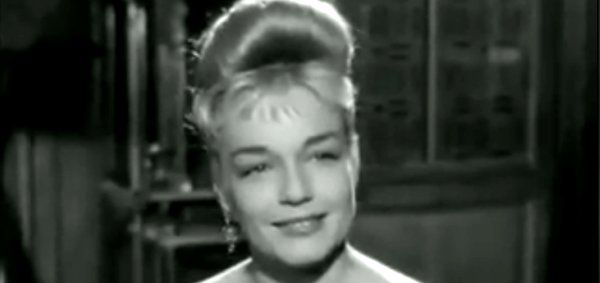
Simone Signoret as Marie ‘Casque d’Or’ – She starts out as the girlfriend of Roland, a member of the gangsters led by a man named Felix Leca.
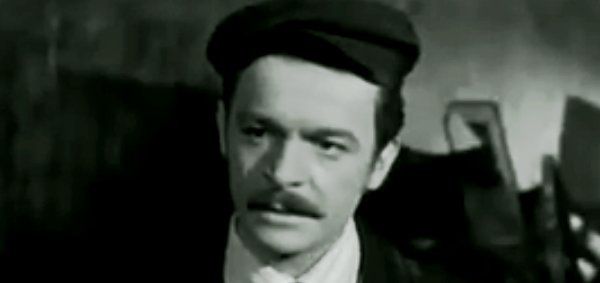
Serge Reggiani as Georges Manda – A reformed criminal, Manda has taken up the carpentry trade. He plans on marrying his employer’s daughter and leading a straight life. At a cafe, he bumps into his old friend, Raymond, one of Leca’s gang. There he also meets Marie and they fall in love at first sight.
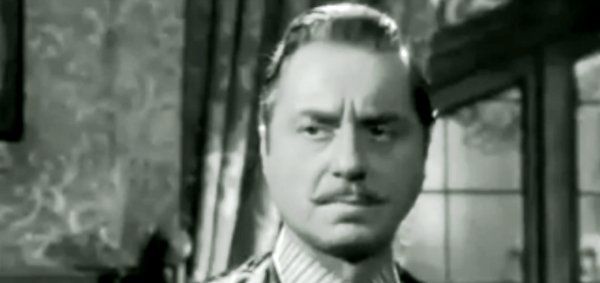
Claude Dauphin as Felix Leca, the gang leader – Leca has his eye on Marie and even tells her that he would like to buy her from Roland.
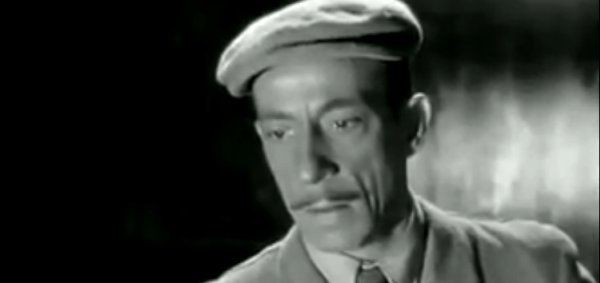
Raymond Bussières as Raymond, Manda’s old friend who calls him “Jo.” This is apparently a nod to the real-life Manda, whose name was Joseph Pleigneur.
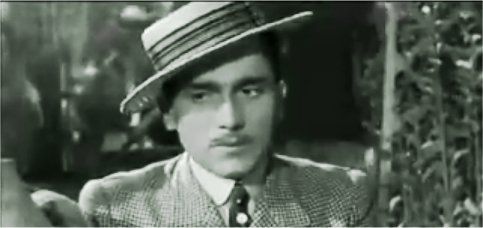
William Sabatier played Roland Dupuis, Marie’s original “owner.” He was listed in the end credits. He gets killed mid-way through the film but, ironically, is one of the few actors, if not the only one, who is still alive as of this writing.
Casque d’or means golden helmet in French, the inspiration being Marie’s lovely hair all piled up on top of her head, and supposedly the reason that men find her irresistible. What also sets Marie apart is an independent spirit. She first intends to leave Roland for Manda. When she finds out that Manda is engaged, his hatchet-faced fiancée calls her a whore and Marie wants to slap her down, but Manda stops her. She settles for slapping him in the face and lets Felix Leca talk to Roland about “buying” her. Meantime, Manda leaves his job and comes for Marie.
A fight between Roland and Manda is set up by Leca outside the cafe. Manda kills Roland. Marie meets up with him at the home of Ma Eugène, by the river in Joinville, but Leca has sent the crew out to locate her. Manda’s faithful friend, Raymond, tells Leca not to get any ideas of doing Manda any harm. He will never get Marie if he does. Tricky Leca decides to smoke Manda out by framing Raymond for Roland’s murder. That was easy-peasy because Leca told Raymond to keep Roland’s personal belongings as souvenirs after the fight. It works. Manda turns himself in so Raymond won’t go to the guillotine for something he didn’t do and Marie has no one to turn to for help but Leca.
Spoilers Ahead
Once Leca gets what he wants from Marie, he refuses to help break Manda out of jail and mistreats Marie as badly as Roland used to. Marie goes alone to follow the paddy wagon when Manda and Raymond are being transferred. (Raymond wasn’t off the hook — he got charged with accessory to murder). Raymond found a way to tell Manda it was Leca who framed him and why. When the men see Marie, they make a break for it. Raymond gets shot in the melee.
Manda takes Raymond to the l’Ange Gabriel cafe. Seeing that Leca isn’t there, he tells the gangsters to get a doctor for Raymond. They are all very upset and they all blame Leca when Raymond dies. Manda does not find Leca at his house but he does find Marie’s slippers in Leca’s bedroom, adding more fuel to his cold rage. He heads back to l’Ange Gabriel. Leca has left the cafe rather than face the accusing stares of his crew. He spots Manda, turns and head a different way. He walks as fast as he can to the police station with Manda in hot pursuit.
The Inspector that Leca has in his pocket is not there. Manda enters. “Don’t you recognize him? Arrest him!” Leca yells at the cops. Manda takes a gun out of a holster hanging on the wall as Leca jumps through a window opening into a holding cell. Manda follows him, swings the shutter back and bolts it. He shoots Leca dead. Bang! Bang! Bang! Bang! Bang! Bang! Must’ve been a 6-shooter. In the end, Leca got what he deserved, although Manda may have wished he stayed with hatchet face.
Based on a True Story
This film is loosely based upon events that took place in the early 1900s, involving the supposed love triangle of a prostitute named Amelie Elie, the original Casque d’Or, and two pimps, Joseph Pleigneur aka Manda, and Dominique Leca. It was built up into a big story about the passionate nature of the two men fighting over this woman. Amelie Elie was hardly the least of the promoters of this tale. She even starred in a play about it but I am skeptical that it was a real love triangle like for instance, the 1951 Barbara Payton scandal, when Franchot Tone and Tom Neal came to blows over her and both of them later married her. Whatever feelings the real Manda and Leca had for the real Casque d’Or, both had her out working on a street corner so it seemed more like a property issue, as this film hinted. The two men wound up in the French penal colonies of Guyana, while Elie continued to be a lady of the night for a while, till she got married. There are a bunch of pages about the real story, complete with pictures of Elie, Manda and Leca, mostly all in French. On this site that covers a multitude of French personalities, they are all listed by last name in the index.
Whichever version of the story you find the most interesting, the Casque d’Or film is a delight for Simone Signoret fans. Not only was her great beauty captured to full effect in many close-ups, the personality she brought to her character with very little dialogue was a treat. Leonard Maltin said of this film that it is “much more than just a period crime yarn, this is one of the most physically beautiful and sensuous films ever made.”
All of the dialogue between Marie and Manda, such as it was, appears on the next page.

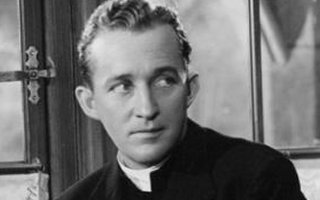
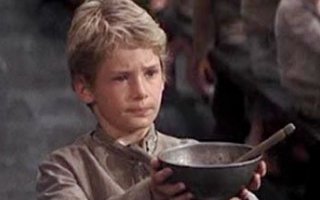
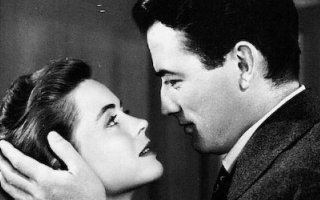





There is another movie I saw from 2003, Monsieur Ibrahim with Omar Sharif, that is kind of the reverse of Madame Rosa. He is an Arab shopkeeper who becomes a father figure to a Jewish boy named Moishe. He calls the boy Momo. same nickname as the Arab boy in Madame Rosa.
I saw that one too; I thought it was okay. You’re right, it is kind of the male version of Madame Rosa, but a lot less sad.
Hooray for Texas—the sun wil come out tomorrooooowwww… —fingers crossed. 🙂
I saw Monsieur Ibrahim in the movie theater, VJ, and I enjoyed it. Where do all of the years go, I can’t believe it came out so many years ago already.
VJ and Rhonda, have any of you seen the old movie, ‘La vie devant soi’, where she plays a retired prostitute taking care of other prostitutes’ kids? I also read the book, written by my favorite French writer, Romain Gary. Both film and book, superb.
P.S. VJ, I’m glad you’re posting—still not powerless, yay.
Hey Cece, I did see this film years ago under the title “Madame Rosa.” I would def watch it again. One part I still remember is when the Nigerian guy told Rosa he was a king and she said yes, he was a king — king of the meshuggas. She told him that meant king of the kings in Jewish. LOL!!
Lol, VJ, that Rosa was a trip. My boyfriend’s mother has the tape and years ago she told us we had to watch it. I’ve watched it again since then. Do you remember the “vegetable” conversation? That cracked me up and made me cry at the same time.
Do you mean the one where the boy didn’t want her to die, or the one where the boy told her a different version of vegetable than the doctor told him?
And speaking of the doctor, he was the same actor that played Leca in this film. I didn’t realize that Claude Dauphin was so much older than Simone Signoret. Evidently, I have seen him in a lot more films than I ever realized!
The “different version of vegetable” one—so heartbreakingly mature of him. The book is even more heart wrenching in its details.
I never saw Casque d’or; I’m not a fan of very old movies (before 70’s), with a few exceptions, like Truffaut’s, Chaplin’s…
Rhonda, if you can’t find this movie on Netflix or Amazon to stream, you may wanna try Youtube. You can find some old foreign movies in there.
Cece, I remember when Madame Rosa came out years and years ago, but I never got to see it. I didn’t realize that it had been a book first.
VJ, so happy to see that your power is still on.